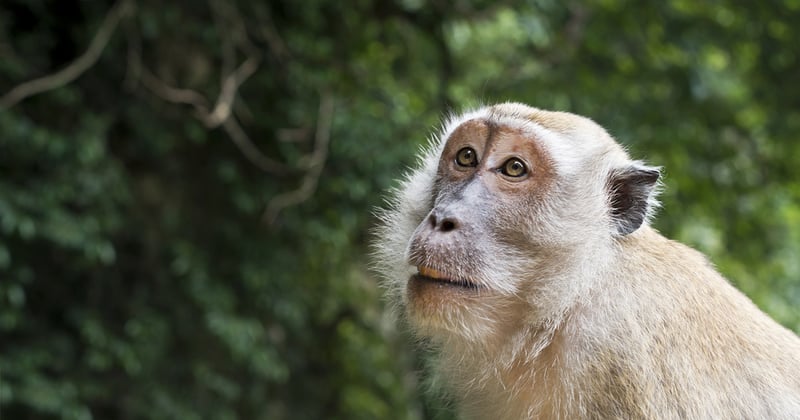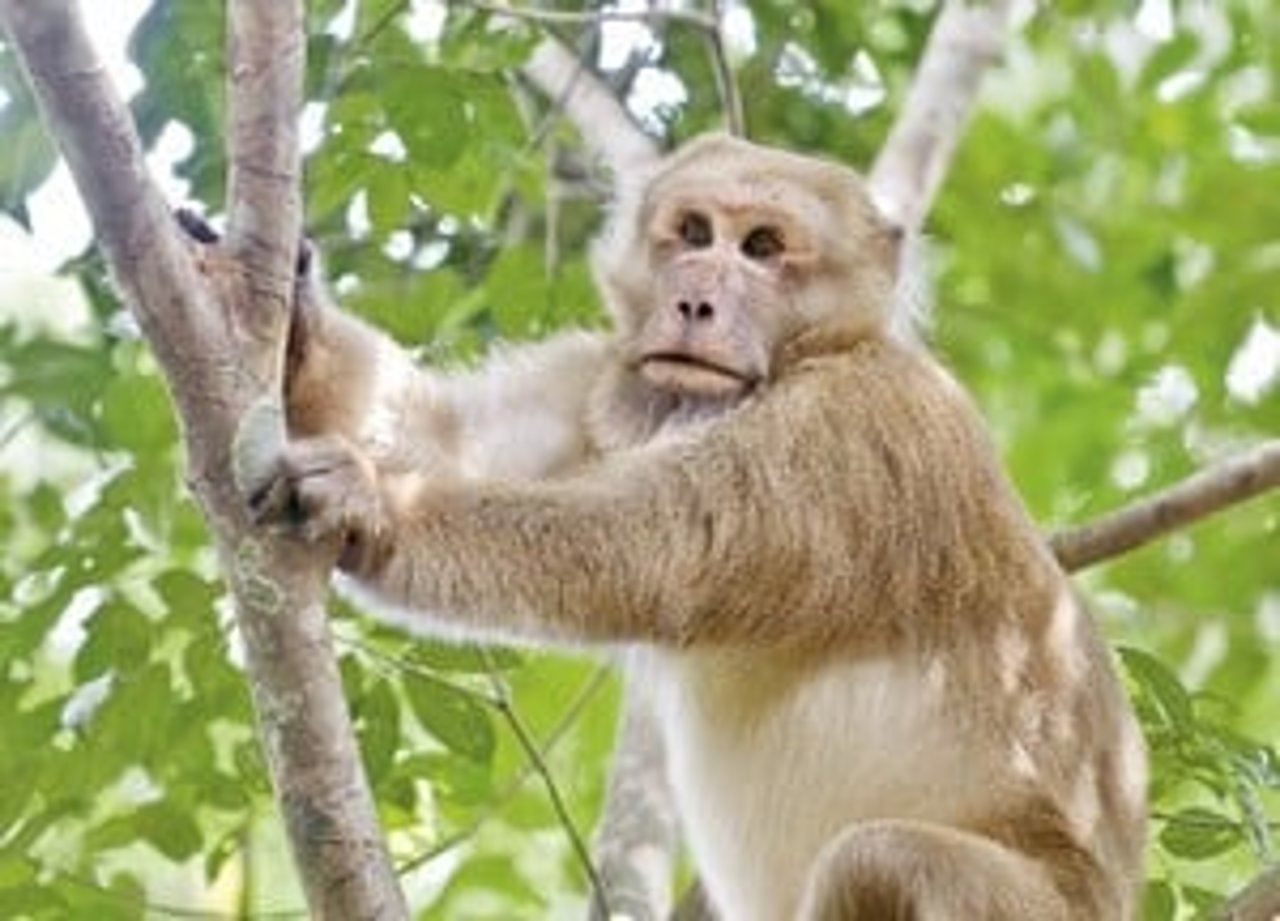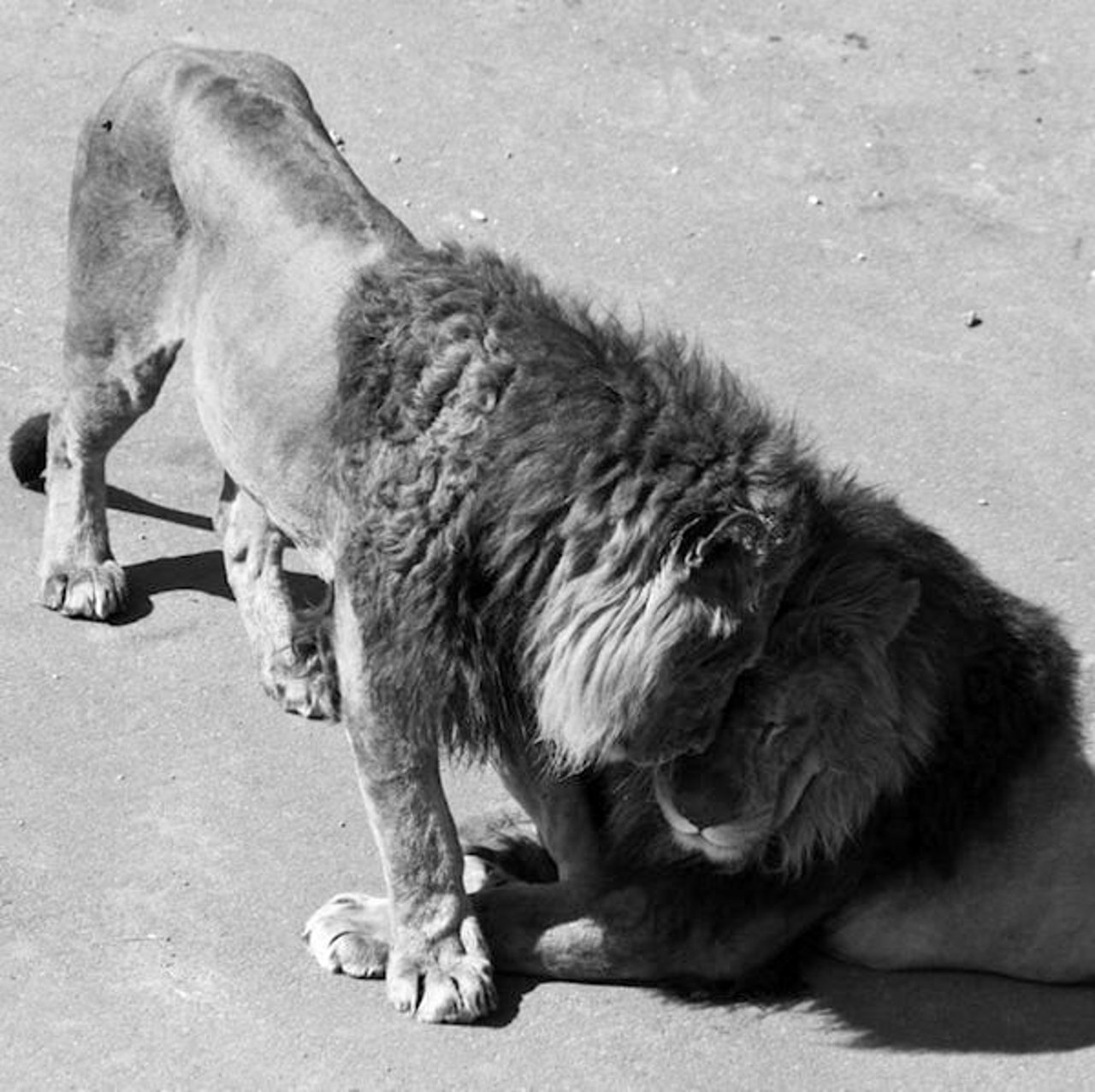
No Macaque is an Island*
News
Animal Welfare Specialist Priya Motupalli discusses animal kingdom bromances in honor of Valentine's Day
Valentine’s Day has come a long way from when I was in elementary school and we were forced to make cards that inevitably got everyone in trouble a la Lisa Simpson’s “I choo-choo-choose you” V-day debacle. Now, we’ve got a plethora of ways we can engage with this holiday to show our friends, family, and significant others that we care (or don’t care): there’s Anti-Valentine’s day, Galentine’s day, and even a Bro-mantic Valentine’s day.
Bromance in the Animal Kingdom
A number of species engage in affiliative behaviors (social-grooming, licking, head-rubbing), in order to maintain appropriate hygiene, reduce tension related to competition for resources, and interestingly, to maintain social bonds that may be similar to human friendships. These bonds can be incredibly important as they facilitate long-term biological fitness of individual animals.
Macaque bros
Recently, at a wildlife sanctuary in Thailand, German researchers investigated the strength, equitability, and long-term stability of relationships formed between male Assamese macaques via observations of social-grooming. Analysis of 9000 hours of observed behavior collected over seven years revealed that:
- adult males were selective of their grooming partners, and directed grooming behavior towards specific males
- the strength of the relationship (as measured by time spent in close proximity, time spent in body contact, and time spent grooming) varied, with stronger relationships having a more equitable grooming exchange
- of the observed animals, more than 50 % retained relationships with their grooming partner for the duration of their time in the wildlife sanctuary (between 2-7 years)
Basically, bros chose specific bros to engage in bonding behaviors with and if they liked each-other (i.e. they had a strong bond), they were more likely to reciprocate those lovely behaviors and keep those bros around for a long time. As human friendships seem to be characterized by variations in these three factors (bond strength, long-term stability, and equitability), the authors suggest that these male primates might be forming friendships too!
This Assamese macaque wants to get his bro-oming on:
Photo: Oliver Schülke
Lion bros
The use of affiliative behaviors as a means to create, maintain, and strengthen social bonds, rather than simply a way to promote hygiene or reduce tension isn’t just a phenomenon in male monkeys. In 2013 research conducted by observing captive African Lions at a zoological park in Japan reported that head-rubbing behavior observed in male lions characterized by an individual lion rubbing it’s head against another lion’s head, neck, or chin area was important in relationship building for these large cats.
Photo: Plos.org
All bros
So while humans might get a little bro-mantic this Valentine’s Day via a hug, male Assamese macaques choose social-grooming as a way to let their bros know they care, and African lions express their affection for that special guy in their life through head-rubbing. Whatever floats your broat right?
Paul Rudd and Jason Segel hug in “I love you man,” the ultimate bro-mantic comedy
*Title credit Sam Erenberger


